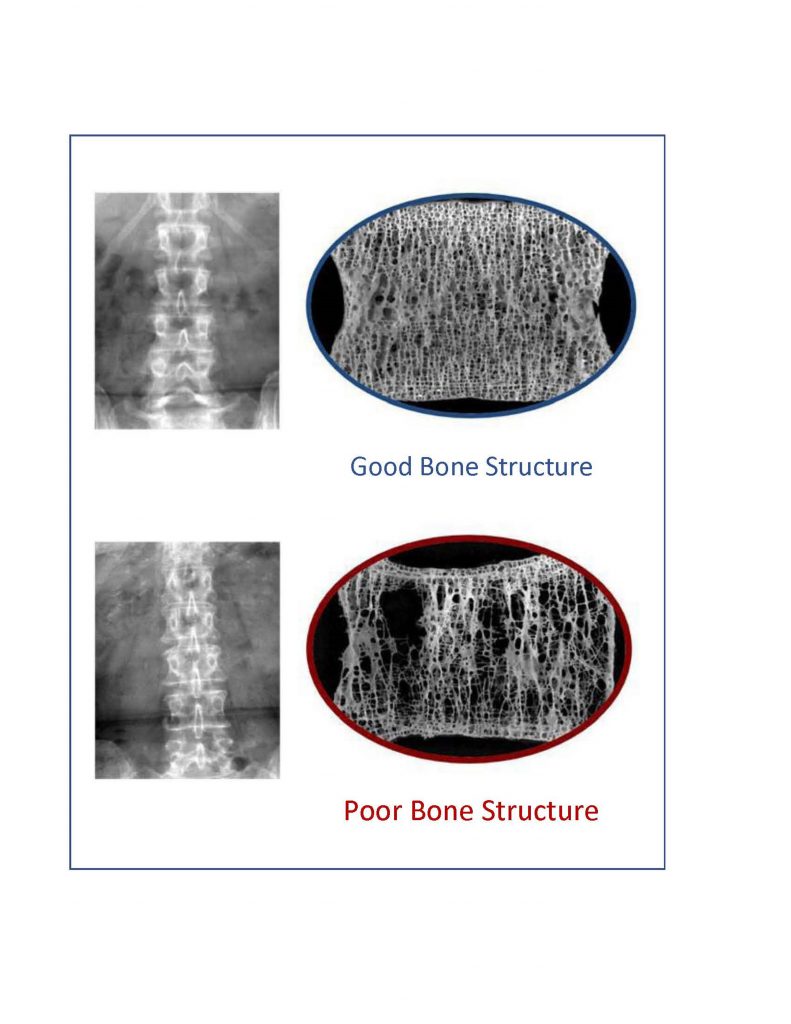What is Bone Density Testing?
Bone density (also known as bone densitometry) testing is a way of measuring the amount of calcium in a certain amount of bone. This is important because the amount of calcium in your bone determines how strong it is. If the bone density is very low, then you have osteoporosis and a very high risk of fracturing your bones. A standard X-ray is not a good way to measure bone density, because you must lose about 30% of your bone mass before it can be detected this way. We need to find out about any problem long before it gets that severe. There are different techniques for measuring bone density. The most advanced, and the one used by New Mexico Clinical Research & Osteoporosis Center, is called “Dual-energy X-ray Absorptiometry” or DXA. This uses a very weak form of X-ray (about 1/30 the radiation of a standard chest X-ray) to rapidly scan your bones, and a computer to convert this information to numbers indicating your bone density. This is a high technology test, but is very easy to go through. It takes only a few minutes, and involves no shots, needles, enemas, or medicine. In fact, you don’t even have to take off your clothes, provided you are wearing nothing with metal in it.
Who needs a bone density scan?
The answer is – anyone who wants an accurate measurement of bone density. However, because of cost concerns, the test is most often done for those with high risk of developing osteoporosis, or to monitor the effectiveness of treatment for osteoporosis. Consult with your physician if you think you might benefit from knowing your bone density.
The categories for which bone density is most often done are:
Women age 65 and older and men age 70 and older.
Perimenopausal women, postmenopausal women under age 65, and men age 50 to 69 with risk factors for fracture .
Adults over age 50 with a fracture.
Adults with a condition or taking medication associated with bone loss.
Monitoring of therapy for osteoporosis.
Will insurance cover bone density?
It depends. At this time, most insurance companies have a very specific list of diagnoses which will qualify you for coverage to have bone densitometry done. The list is different for each type of insurance, and often pre-authorization is required before the test is scheduled. Your physician’s office can give you more information on whether or not you will be covered. If you and your physician feel that the test should be done, even if not covered by insurance, then arrangements can be made for self-pay at a discounted rate.
How is a bone density scan scheduled?
To schedule a bone density scan at New Mexico Clinical Research & Osteoporosis Center, please call (505) 855-5525 and select option 2 to reach our scheduling department.
What is a Trabecular Bone Score (TBS) and why is it important for my bone health?
The Trabecular Bone Score is a newly developed test of your bone structure that is complementary to standard bone density testing. When TBS is combined with bone density testing, we learn more about your bone health than with bone density testing alone. TBS is important because about one-half of people who break bones do not have a bone density that is classified as osteoporosis. TBS can help recognize these people and allow for more personalized care to prevent broken bones.

Do I have to have another bone density scan to get my TBS?
No, TBS does not require any additional scanning. It uses advanced software cleared by the FDA to measure your bone structure with the same scan that measures your bone density.
How much does the TBS cost and will my insurance pay for it?
Insurance companies do not cover this measurement at this time. The cost to you for TBS is $50.00 (far less than the cost of having a broken bone). Let us know if you would like to have a TBS included with your bone density test.